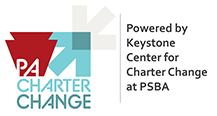Capitolwire: Public school groups say cyber schools spent millions on advertising with tax dollars.
Capitolwire (used with permission) by John Finnerty, January 25, 2022
HARRISBURG (Jan. 26) — Advocates for traditional public schools said Tuesday that records obtained using the state’s Right to Know law show that cyber charter schools spent at least $35 million over the last two school years, using tax dollars on advertising to recruit students from brick-and-mortal schools. The revelation comes as advocates for traditional schools have ramped up their lobbying to get the General Assembly to act on long-stalled legislation that would update the state’s charter school law.
Following the press conference — with lawmakers, including state Rep. Joe Ciresi, D-Montgomery, and representatives of Education Voters of Pennsylvania and the PSBA’s Keystone Center for Charter Change — Gov. Tom Wolf released a statement renewing his call for lawmakers to act to reform the way cyber schools are funded.
The governor and legislators unveiled a plan last year that protects students by holding low performing charter schools accountable, protects taxpayers by reining in skyrocketing charter school costs and improves the public trust by increasing transparency of for-profit companies that manage some charter schools. “This is not about cutting funding. This is about ensuring taxpayers are not overpaying charter schools and draining money from traditional public school classrooms. We must ensure that every school, both charter and traditional, has the resources to give students the education they need,” Wolf said.
“The state no longer provides funding to help districts pay for charter school tuition, so charter tuition bills are paid for primarily through property taxes,” said Susan Spicka, Executive Director, Education Voters of PA. “What we have learned is deeply troubling and should serve as a call to action for leaders in the Pennsylvania legislature to immediately allow a vote on legislation that will ensure public education dollars are used efficiently and appropriately educating children and to enact reforms that will hold charter schools to the same financial accountability and transparency standards as school districts.”
Rep. Curt Sonney, R-Erie, the chairman of the Education Committee, didn’t respond directly when asked by email what the snag is that’s preventing the charter reform bills from moving forward. “As negotiations continue between the House, Senate and governor, I’m still hopeful we can come to an agreement that finally moves us towards making changes in the cyber school law,” he said in an email.
Cyber charter schools spent property tax dollars on bus wraps and billboards; TV, radio and internet advertisements; ads on Hulu, Pandora, YouTube, Pinterest, Twitter and Facebook. They paid for museum sponsorships and embroidered Eddie Bauer vests. Commonwealth Charter Academy provided invoices totaling more than $8 million in advertising expenses for the 2020 fiscal year, yet reported $0.00 for advertising expenses on their tax forms.
Among the other marketing costs revealed in the Right to Know requests:
- Reach Cyber Charter paid just under $20,000 to the Lehigh Valley Iron Pigs as part of an agreement that included a provision that the team would hand out 1,500 logo “co-branded” baseball hats at a game.
- Agora Cyber Charter School spent $25,000 to sponsor the Mummies of the World exhibit at Carnegie Science Center in Pittsburgh, and $25,000 to sponsor the Discovery Basecamp and Discovery Days at Carnegie Museum of Natural History. Agora also paid $15,000 to be a sponsor of events at the Franklin Institute in Philadelphia.
- PA Cyber Charter School paid $15,000 to a sponsor at the Children’s Museum of Pittsburgh, a deal that included the opportunity to post signs advertising the cyber school inside the museum.
Rep. MaryLouise Isaacson, D-Philadelphia, said the House Education Committee moved bills that were supposed to serve as “vehicles” for charter reform legislation but since then, “We’ve heard crickets.”Ciresi is the prime sponsor of House Bill 272, which would set a statewide tuition rate for cyber schools (they now get paid tuition based on the cost of educating students in each district they serve), along with other reforms. His legislation hasn’t gotten a vote in the Education Committee yet. Ciresi said he doesn’t think cyber schools should be barred from using tax dollars to advertise but he thinks the state law should be updated to mandate greater transparency about how the cyber schools are spending their funds.
